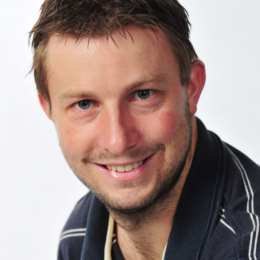Assistant Professor Chris Gouramanis
My primary research priority is to improve our understanding of drought histories, large-scale climate dynamics and the impacts of climatic change in southeast Asia and Australia using high-resolution terrestrial (typically lacustrine) and coastal palaeoenvironmental and palaeoclimate records. I investigate the role of drought and drought recovery from these high-resolution lacustrine and coastal records to improve natural, regional-scale water resource variability and the impacts of coastal hazards to better constrain the impacts of future climate change on food and water security. To do this research I use sedimentological, (geo)chemical and biological proxies and I am interested in short (decadal) and long (multi-million year long) records.
I also investigate the impacts of recent and past coastal hazards (storms and tsunami) in Asia. I examine modern sedimentary deposits of storms and tsunami to try and develop methods to differentiate these types of deposits from geological archives of past events. I primarily use sedimentological, geochemical, geophysical and micropalaeontological (primarily ostracod and foraminifera) proxies, and I utilise sophisticated statistical techniques to provide robust and quantitative analyses of the modern sedimentary deposits and apply these to palaeorecords to try and derive accurate coastal hazard histories to help protect at-risk communities. I have refined the use of Ground Penetrating Radar to identify thin coastal overwash sandsheets in both storm and tsunami effected areas. To improve our understanding of coastal hazards, I have worked closely with insurance companies, government policy and decision makers in Southeast Asia and provided them with much needed information to better protect their coastline, infrastructure and people.
I am interested in developing and testing proxies to refine and better quantify how environmental change is recorded in proxies preserved in geological records. I have significantly improved the use of Australian lacustrine ostracods by examining how they calcify and record environmental (namely water metals and stable isotopes) information in their shells. As well as the ostracod shell chemistry, I have also examined the biogeography of Australian lacustrine ostracods to understand how these species are adapted to and respond to changes in Australian non-marine waterbodies.
I also have a long-standing interest in the initial terrestrialisation of invertebrate and vertebrate groups in the early Palaeozoic and have examined several sites in Australia that offer interesting perspectives that question the established status quo.
He is featured in Focus On: Disasters, an Asia Research News resource for journalists to find stories and sources.



